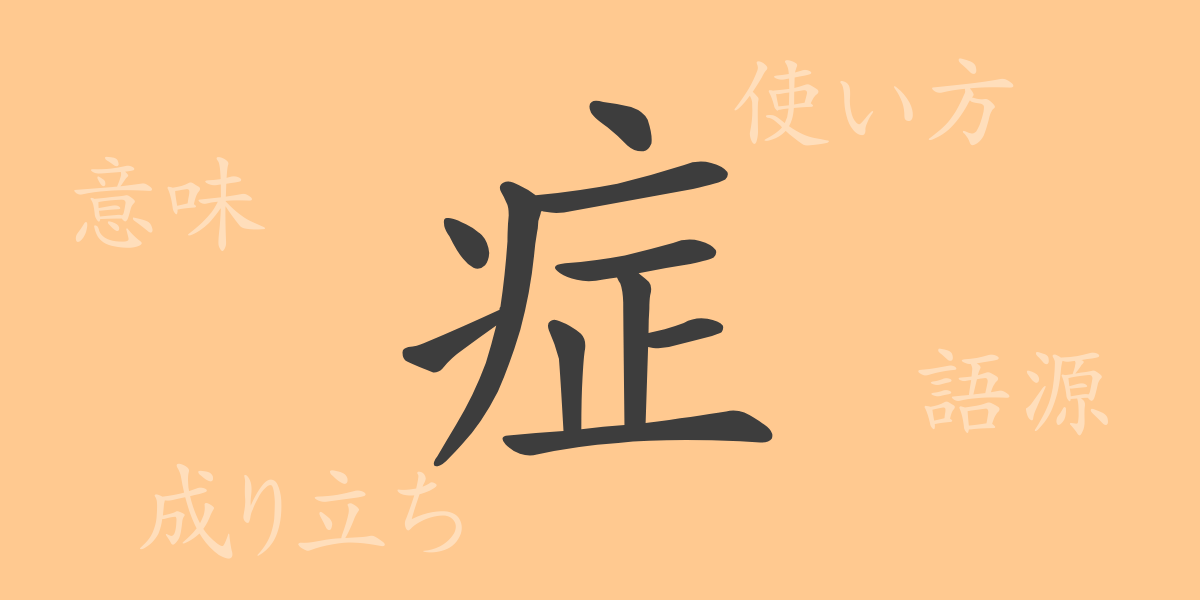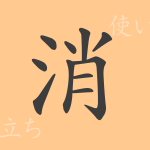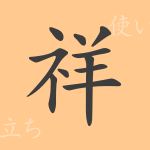The Japanese language is rich with kanji, each bearing its own unique history and meaning. “症(しょう)” is one such character that deeply intertwines with our everyday lives, expressing concepts closely related to us. This article delves into the world of “症(しょう)”, exploring everything from its etymology to its modern applications, and even the phrases and idioms derived from it.
Origins of 症(しょう)
The kanji “症(しょう)” originated from ancient Chinese script. It has been used since ancient times in the field of medicine to indicate diseases or symptoms. The character combines “疒(やまいだれ)”, a radical denoting sickness, with “正”, symbolizing correctness or accuracy, essentially describing the correct manifestation of a disease’s symptoms.
Meaning and Usage of 症(しょう)
The kanji “症(しょう)” refers to diseases, symptoms, or specific conditions. It’s widely used in medical terms like “症状(しょうじょう)” for symptoms or “疾患(しっかん)” for diseases, such as in “病症(びょうしょう)” and “症例(しょうれい)”. Metaphorically, it also appears in phrases like “社会症(しゃかいしょう)”, denoting societal conditions or issues.
Pronunciation, Stroke Count, and Radical of 症(しょう)
Let’s explore how “症(しょう)” is pronounced and structured:
- Pronunciation: The on’yomi (音読み) is “しょう”, with no specific kun’yomi (訓読み).
- Stroke Count: “症(しょう)” consists of 10 strokes.
- Radical: The radical is “疒(やまいだれ)”, associated with illness or disease.
Phrases and Proverbs Using 症(しょう)
“症(しょう)” appears in various idioms and phrases, each reflecting aspects of human health and behavior:
- 病症(びょうしょう): Refers to the state or symptoms of a disease.
- 症状(しょうじょう): The symptoms or manifestations of an illness.
- 重症(じゅうしょう): Describes a severe and critical condition of an illness.
- 愛の症(あいのしょう): A metaphorical expression for the sufferings and troubles related to love.
These phrases are frequently used in everyday life, aiding in the expression of emotions and conditions.
Summary on 症(しょう)
The kanji “症(しょう)” has long been utilized to denote illnesses and symptoms. Predominantly read as “しょう”, it is a pivotal part of medical terminology and extends to various expressions. Comprising 10 strokes and led by the “疒(やまいだれ)” radical, “症(しょう)” is an integral component of Japanese discussions about health and lifestyle. It continues to play a significant role in our language, reflecting its importance in everyday Japanese life.

























